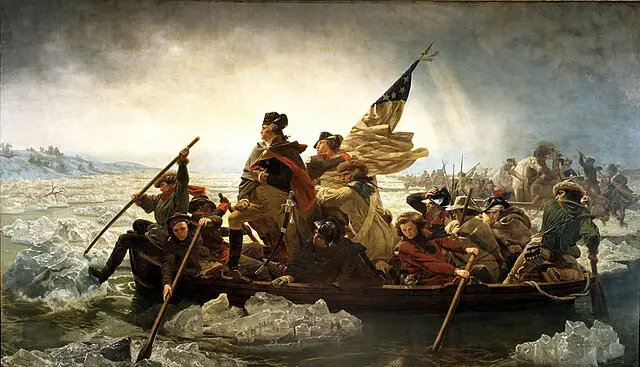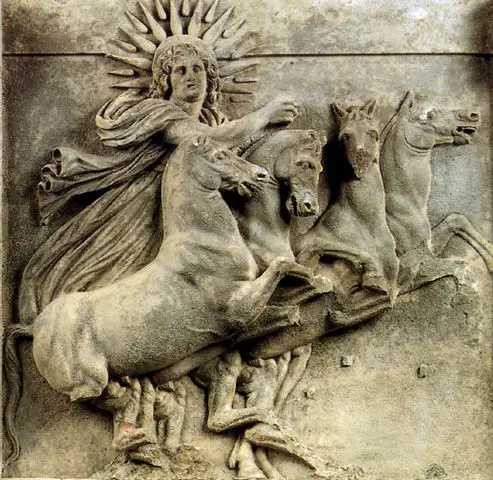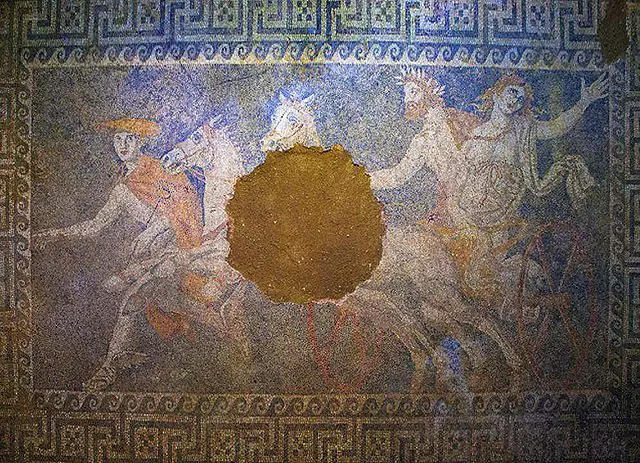| Further Reading | Top 5 Most Interesting Facts About Medieval Society |
A vast majority of the people who lived in Europe during the medieval era were peasants. Like people of today these peasants needed access to water to survive and live their life. However, how did these peasants get clean water on a regular basis? This article answers the question of whether or not medieval peasants would boil their water to prevent disease.
During the medieval era peasants did not boil their water. Germ theory was not invented until the early 19th century, well past the medieval period. Instead of boiling their water medieval peasants would either mix their water with alcohol or build up antibodies to bacteria in their local water. Outside of large cities there was no need to boil water during the medieval period.
When we talk about the medieval period of Europe it is important to remember that this time frame spans around 1,000 years and an entire continent. This article provides a general answer but peasants in Russia would have lived differently then peasants in England.
Here at The History Ace I strive to publish the best history articles on the internet. If at the end you enjoyed this article then consider subscribing to the free newsletter and sharing around the web.
Without further ado, here is an entire article answering the question of whether or not medieval peasants boiled their water to prevent disease.
Medieval Peasants Did Not Boil Water Because They Built Up Antibodies To Bacteria From Constant Exposure
In small towns and villages medieval peasants did not need to boil water because they would have built up antibodies to the native bacteria in the water supply.
This was done over generations of people living in the same place. Medieval peasants would have lived on the same land as their parents, who lived on the same land as their parents.
Over time this would cause the medieval peasants to build up a natural immunity to normal bacteria that was present in the water. This allowed them to drink enough water from the local well of the village or small town to not get sick.
Since everybody in the town or village had lived there their entire life most of them would be immune to the bacteria of the local region. Travelers on the other hand would not.
Historians have medieval poems that detail how travelers would get constantly sick from drinking water. Because of this water was seen as being an inferior drink that only the peasantry drank. If you were traveling across medieval Europe you would be given wine or beer instead of water as the alcohol would cleanse the water.
While medieval people did not know what made them sick it was common knowledge that when traveling you should not drink water. However, for the average medieval peasant who grew up drinking the local water then chances are they were fine to drink the water.
As such, because medieval peasants would not boil water so long as they stayed near their local water source. Their built up immunity to their local bacteria would have made drinking natural unboiled water possible.
Medieval Peasants Would Mix Beer And Water To Clean It Removing The Need For Boiling
Outside of small villages or towns medieval peasants would mix beer and water to create clean drinking water. Because of this there was no need to boil water.
The drinking of beer by the peasantry of Europe typically took place in larger cities and towns. This was because the local monasteries or breweries would have the labor available to operate and create enough alcohol to purify water sources.
In large medieval towns such as London peasants would drink beer nearly all the time instead of water. However, this ‘beer’ was extremely watered down and would only be around 1% alcohol by volume by today’s estimates. This was just enough alcohol to kill off bacteria in the water.
The reason that medieval peasants could not simply drink the water in the larger cities was because of the growing population in the cities who constantly migrated between the rural countryside and the city.
This migration of medieval peasants would bring new bacteria into the larger cities. Over time this would get into the water supply of the cities and multiply. This would create a water supply that nobody could drink as they did not have natural immunity. This was especially bad in medieval London during the 14th century when the urban population started exploding.
As such the easiest way for a medieval peasant to get clean water was to simply drink a mixed combination of beer and water. The alcohol would kill off any bacteria in the water and provide a clean drinking solution.
In the larger cities and towns medieval peasants would not boil water. Instead they would drink a mixture of beer and water that provide clean water.
Why Didn’t Medieval Peasants Boil Water?
So the question remains: If medieval peasants would get sick from the water or they had to buy beer-water then why would then not boil the water instead? Surly there was an economic incentive to having clean water readily available.
The concept of boiling water to clean it was common knowledge. For thousands of years humanity has known that boiling water creates clean drinking water. Historians know of medieval kings and nobility that would boil their water for traveling purposes.
Why then did medieval peasants not boil water to clean it? The answer is that it was not cost effective to boil water constantly. In small villages or towns medieval peasants would have built up natural immunity to native bacteria in the water while in the larger cities it was cheaper to just buy beer.
Today people take for granted how easy it is to boil water. We simply just have to throw a pot over a heat source that we have at a flick of a switch. However, for the peasants of the medieval era this was not the case.
Depending on the time period wood was incredibly hard to find. By the late medieval era nearly all of the woods of Europe were either controlled or gone. The peasants were already poor, imagine them having to spend what little money they had on costly wood to boil water.
Even if the medieval peasant had easy access to wood it would have not been spent on heating a fire to just boil water. Instead medieval peasants in woodlands would have turned the wood into viable exports or heated their homes.
Instead most medieval peasants living in the countryside would have just drank water from a nearby stream or well. Those living in the city would instead just buy beer or chance drinking the water.
Conclusion
There you have it; an entire article with sources answering the question of whether or not medieval peasants boiled water to prevent disease.
Generally speaking most of the medieval peasantry of Europe would have built up natural immunities to their local water supply over generations. The problem with water came from the larger cities where there were too many different types of bacteria. Here beer was mixed with water to create a clean water alternative.
Here at The History Ace I strive to publish the best history articles on the internet. If you enjoyed this article then consider subscribing to the free newsletter and sharing around the web.
Further, you can check out some of the other articles below.
-
How The American Revolution Changed The World

Here is how the American Revolution changed the world. Many people are not aware of just how important this event actually was.
-
Why The Roman People Loved Chariot Racing

Why did the Roman people love chariot racing? Well it all comes down to these 3 reasons.
-
The Design and Color of Roman Chariots

What was the design and color of Roman Chariots? Were they faster or slower then normal chariots? Well here is everything!
Sincerely,
Nick